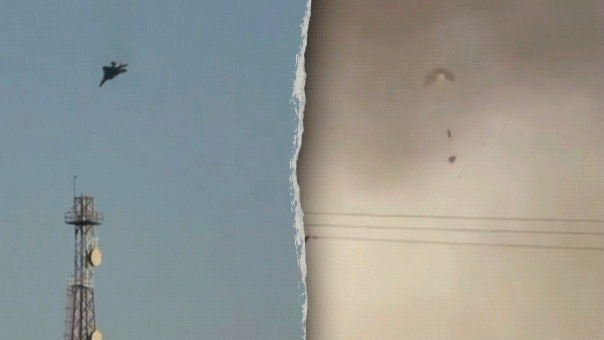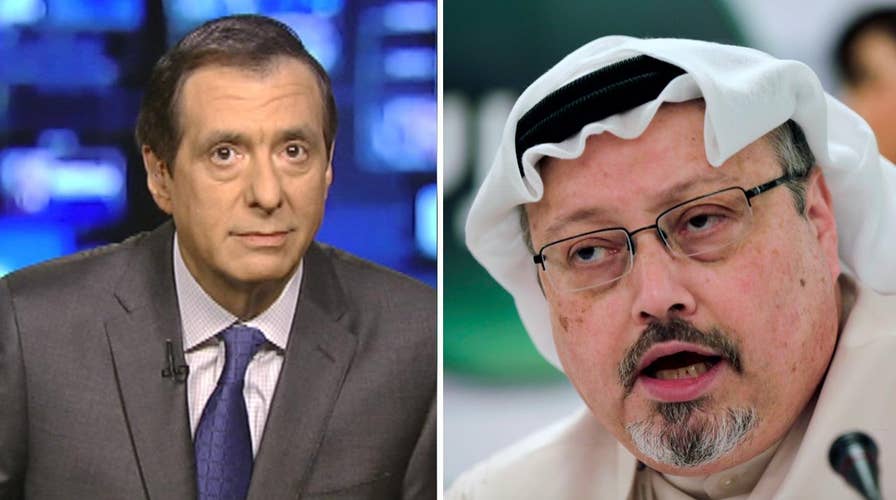Kurtz: A reckoning for those who take dirty Saudi oil money
'MediaBuzz' host Howard Kurtz weighs in on some mainstream media outlets showing their disgust toward Saudi Arabia after the disappearance of Jamal Khashoggi despite their parent companies stil receiving Saudi oil money.
The media and political criticism of President Trump for his handling of the crisis with Saudi Arabia is growing louder.
And I understand why his approach — slow it down, wait and see, we do a lot of business with the Saudis — is upsetting those who are outraged about the apparently gruesome murder of Washington Post contributor Jamal Khashoggi.
But the larger picture is that a whole lot of important people in this country have gotten cozy with the Saudis, despite their horrendous record on human rights and the treatment of women.
From Washington to Los Angeles, they have engaged in the typical rationalizations for representing a sleazy regime, as long as the oil money kept the coffers full.
And now, with the kingdom unable to explain why Khashoggi walked into the Saudi consulate in Istanbul and never walked out, many of them are embarrassed.
The giant Hollywood firm Endeavor is giving the Saudis back a $400 million investment, according to the Hollywood Reporter.
The CEO, Ari Emanuel, brother of Rahm, made the decision to return the dough, provided by a Saudi investment fund overseen by Mohammed bin Salman, the crown prince who is suspected of either approving or acquiescing in the hit squad dispatched to deal with Khashoggi.
But Emanuel did this under pressure from high-profile clients of the company's WME agency, which represents such journalists as Ronan Farrow, Mika Brzezinski, Chris Matthews, and Scott Pelley. "Had Endeavor kept the money," the story says, "it likely would have led to departures."
The company declined to comment, but Farrow tweeted: "This was absolutely the right thing to do and I'm glad Ari Emanuel addressed it quickly."
Other Hollywood outfits still doing business with the Saudis include AMC, Imax and World Wrestling Entertainment, which either had no comment or say they're "monitoring the situation" — corporate-speak for doing nothing unless the pressure gets to be too great.
The administration made headlines when it pulled Treasury Secretary Steve Mnuchin from next week's big-deal Saudi investment conference. But under this harsh spotlight, lots of major media organizations are bailing as well. These include the owner of the L.A. Times, the CEO of Viacom and CNBC anchor Andrew Ross Sorkin.
What's more, CNN, CNBC, the New York Times, Bloomberg and Financial Ties have all withdrawn as sponsors of the conference. Those kinds of partnerships are what has lent the Saudi regime a sheen of respectability over the years.
And then there are the Beltway lobbyists.
Three major firms — the Glover Park Group, the Harbour Group and the BGR Group — have ended agreements they had to represent the kingdom. Those contracts were worth a combined $3.7 million.
But the Saudis, who spend $6 million a year on lobbying and promotion, still have deals with the likes of the blue-chip firm of Gibson, Dunn & Crutcher and the McKeon Group, headed by former House Armed Services Chairman Buck McKeon.
The Washington Post yesterday devoted its entire op-ed page to Khashoggi's final column. In recalling that a Saudi friend has been jailed for five years for "supposed comments contrary to the Saudi establishment," Khashoggi wrote that "Arab governments have been given free rein to continue silencing the media at an increasing rate."
Those are chilling words. And the question for the president, the media companies, the lobbyists and others who deal with Saudi Arabia is whether much will change once the Khashoggi controversy inevitably fades.













































